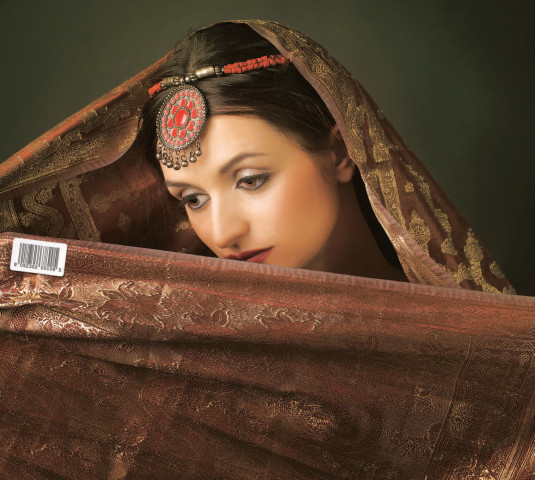The lunacy of the Pakistani wedding
From a financial perspective, this wedding culture of over-the-top nuptials could not possibly be more ruinous.

The lunacy of the Pakistani wedding
Given that fun seems to be generally illegal in the country, weddings seem to be the only excuse for people to escape the drudgery of their boring lives. Yet from a financial perspective, this culture of over-the-top nuptials could not possibly be more ruinous.
Having worked as a financial advisor in Karachi, I’m all too familiar with the fact that most people are not smart enough to plan out their financial future. Yet the few who are list their children’s wedding as one of their major life expenses, alongside infinitely more justifiable investments such as buying a house, saving for their children’s education and perhaps even their own retirement, are just plain unhinged. And unfortunately, there seems to be no movement in the works aimed at striking the conspicuous consumption of weddings off the list of acceptable cultural behaviour.
So just how excessive are Pakistani weddings? One can judge through a set of comparisons. An American friend of mine recently got married and had what constitutes a reasonably elaborate wedding in upper middle-class America: with around 500 guests, the event cost her around $50,000. To put that in perspective, that is less than three months of the combined incomes of the couple and less than the average per capita income of the United States.
By contrast, a friend who got married in Pakistan had a wedding that was deemed somewhat low-key by upper middle-class Pakistani standards and yet still managed to cost more than 40 times the average national income of the country. If the couple each had an income equal to mine, the bill would equal more than a year and a half worth of salaries for the two of them combined.
From a financial perspective, there is absolutely no justification for spending that much money to entertain a whole host of people, most of whom only love to bicker and complain rather than act as a genuine support network. The old canard about financial folly is especially applicable to Pakistani weddings: people spend money they do not have to buy something they do not need to impress people they do not like.
Why do we spend so much on weddings? The most obvious reason: a Pakistani wedding has multiple events that typically stretch over a week, as opposed to other cultures that have just one reception. That alone ratchets up the costs considerably. And while having multiple events does have a basis in tradition, the recent surge in the importance of hitherto side-events like the mehndi has its roots in other phenomena.
As Pakistani society has grown more overtly conservative, weddings remain one of the few culturally acceptable venues for men and women to meet without restriction and even dance with each other. In other words, a mehndi is simply a substitute for a nightclub.
The number of events is not the only problem; there is also the nature of each event. There are elaborate decorations for each, the food must be exquisitely catered and the women must be more bejewelled than display cases at Saks Fifth Avenue. If there is any human cost to the weddings, surely it is borne by the women, who must go through all of the gruelling stress of preparing for the wedding, choreograph the dances, manage many of the events and still look stunningly beautiful while doing it all.
Yet it is the women who seem to love the traditional, and very expensive, wedding format the most. Of the several men I spoke to about weddings, hardly any was supportive of spending significant amounts of money or even having more than one event. The women, on the other hand, were a completely different story.
They all tried to hide behind the shrivelled cloak of cultural legitimacy but most women who chose to discuss their nuptial plans made it very clear that they wanted to have what the rest of the world considers an elaborate wedding.
The phrases used to justify the extravagance ranged from “people will talk if you don’t have an elaborate wedding,” to “I just want a traditional wedding” and “there is social capital being built at weddings.” But the bottom line was obvious: these women have never paid a bill in their life and, despite many of them having jobs, they never will. Cost just does not seem to be factor in their thinking.
Not all women had that attitude, of course. A woman from the Dawoodi Bohra community, for example, seemed to value her community’s emphasis on simplicity. Several professional women from Karachi and Lahore want small, intimate weddings attended only by people who matter to them and their spouse, rather than their father’s prospective clients. But these brave souls are the exception rather than the rule.
By and large, women in Pakistan love big weddings and the men had better foot the bill or else there will be hell to pay. This is not to say that the men do not enjoy the festivities, of course, nor that many women are not in favour of extravagance, nor even that some women do not help pay for their own weddings. But, on balance, what the woman wants is usually closer to what happens.
Take for instance, Khalid, an engineer who wanted to have a small, simple wedding. His wife is American-educated so he thought she would be supportive of the idea. But the lady put her foot down. She was going to have an old-fashioned wedding with all of the bells and whistles, and he had to go along with it.
If there is any hope for sanity amidst the financial absurdity of Pakistani weddings, it must come from the growing class of urban professionals, people who may simply not have the time or energy to spare from their careers to have a traditional series of ceremonies. Here’s hoping the workaholics take over!
Published in The Express Tribune, Sunday Magazine, January 23rd, 2011.



















COMMENTS
Comments are moderated and generally will be posted if they are on-topic and not abusive.
For more information, please see our Comments FAQ